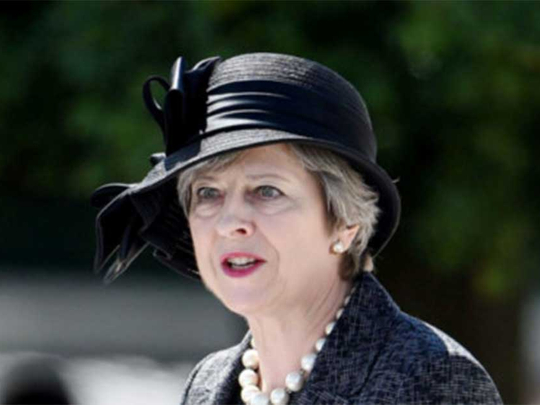
The civil service in United Kingdom prides itself on being able to deliver the crazy and impossible, if ministers so ordain. It even managed to introduce a poll tax for former prime minister Margaret Thatcher, and to somehow keep it going for three years in the face of riots. But it’s increasingly clear that Brexit may be an impossibility too far, even for Whitehall’s brightest and best. By Brexit, I mean the hard Brexit policy of leaving the core economic institutions of the European Union (EU) — the customs union and the single market — as set out by Prime Minister Theresa May in her Lancaster House speech at the start of the year. Before then, the working Whitehall assumption had been that Britain would seek to stay in both, while leaving the key decision-making institutions of the EU, including the European parliament and European Council, resulting in an “associate member” status similar to that of Norway and Switzerland. The Lancaster House speech put an end to that.
Setting aside its merits, there is a huge practical problem with hard Brexit. Leaving the customs union and the single market requires the UK by March 2019 to negotiate new trade treaties not only with the EU27, but with the 75 other nations with which the EU has free or preferential trade agreements, if British trade is not to take an immediate and substantial hit. Between them, these 102 countries include most of the trading world, and account for more than 60 per cent of UK exports of goods and services. Just because ministers keep repeating the mantra that a post-Brexit “global Britain” will trade far more with the “wider world” does not make it true. Britain’s trade is already global — and this is helped, not hindered, by being part of the EU customs union. There are a few large markets with which the EU does not yet have trade agreements, but it has them with most of Britain’s trading partners, and the number is growing. An agreement with Canada came into force last month; heads of terms have just been signed with Japan.
When ministers talk airily of a trade treaty with, for example, the US, red lights should flash immediately. It’s not just a case of whether or not one wants chlorinated chicken. EU negotiations for a trade agreement with the United States have been ongoing for four years, involving 15 rounds of talks so far — and there is still no agreement in sight. Thousands of pages of detailed texts on everything from tax to pharmaceuticals (and chickens) are going through dozens of drafts, involving hundreds of negotiators. And that is just one treaty. Britain has to negotiate more than 40 just to stand still. Within 20 months. So where are the trade negotiators who are going to achieve this near-impossible task? Britain has not negotiated a trade treaty since 1973, and virtually none of the small band of Brits working for the EU “do” trade. The new Department for International Trade (Dit) is therefore having to build up its negotiating capacity from a scratch. What have they achieved? To the question, “How many officials with substantial experience of trade negotiations are there now in Dit?” came this wonderful, Sir Humphrey-style reply: “Dit has a strong and capable trade policy team, which has grown significantly from 45 in June 2016 to over 300 today, and is continuing to grow.” “Strong and capable” does not remotely equal the “substantially experienced” Britain needs.
Even finding a chief negotiator has been an ordeal. The first candidate (a Canadian) turned the job down after a pay dispute, and Dit has had to make do with an official from tiny New Zealand. This isn’t surprising: Trade negotiators generally get their professional kicks from breaking down barriers to trade. Why would it be career-enhancing for negotiators from the rest of the world to come to Britain to help us recreate them? A recruitment consultant tells me that, lacking trade negotiators, Dit is instead putting generalist civil servants — including young fast-stream graduates — through short courses in negotiation techniques: Hardly a substitute. This would account for the £2.5 million (Dh12 million) that the department says is being spent this year on the “training of civil servants in trade policy”.
There is also a need for experienced trade lawyers. Dit has virtually none of those either. It is budgeting to spend £1.5 million in this year alone on private trade lawyers. So it is not a question of whether or not the government wants to stay in the single market and customs union after March 2019. It lacks the capacity to negotiate anything much else. The more a transition deal differs from the existing customs union and single market, the more unattainable it becomes. Britain also needs to be realistic about what lies beyond any transition deal. Negotiating new trade treaties with the EU and the other 75 countries will not be made much easier even by a significantly longer timescale. The EU has never negotiated a trade treaty in less than four years — and it is an institution that has all the negotiators Britain lacks. The poll tax analogy is too favourable. After all, the poll tax actually made it off the ground.
— Guardian News & Media Ltd
Andrew Adonis is a cross-bench peer and chairman of the National Infrastructure Commission.









